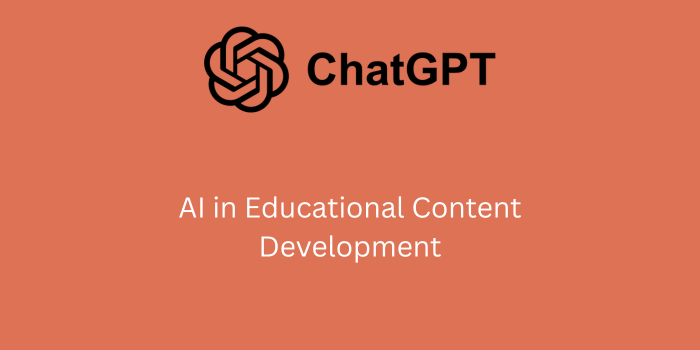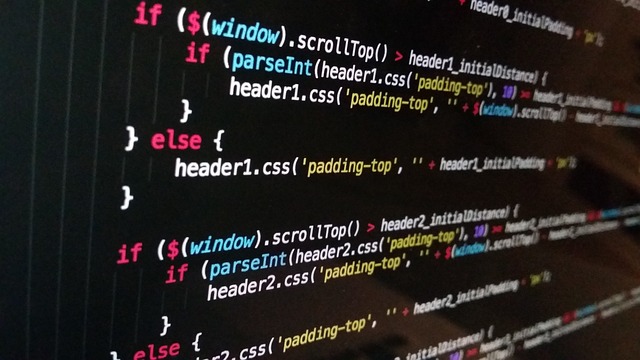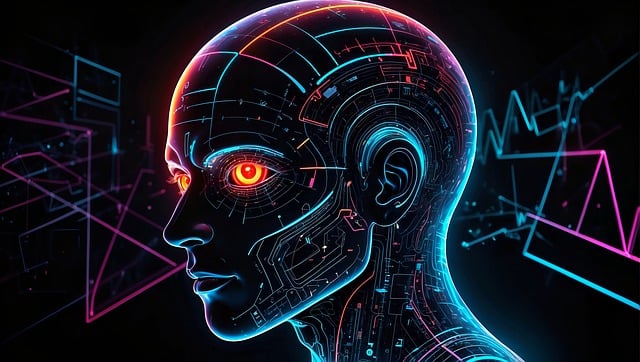Artificial Intelligence (AI) is rapidly transforming various sectors, and education is no exception. In recent years, AI has made its way into educational content development, significantly impacting the way learning materials are created, delivered, and experienced. This technology holds immense potential to enhance educational quality, foster personalized learning, and automate time-consuming tasks for educators. In this blog post, we will explore how AI is revolutionizing educational content development and the future it holds for e-learning.
The Role of AI in Educational Content Creation
AI has become an essential tool in the creation of educational content, allowing for the development of more engaging, adaptive, and personalized learning materials. Traditionally, educational content development involved extensive human effort, with teachers and instructional designers crafting lesson plans, assignments, and quizzes manually. However, AI has simplified and accelerated this process through automation and data-driven insights.
AI-powered tools can now generate personalized content based on individual student learning patterns, enhancing the relevance and effectiveness of materials. By analyzing data from various sources, including student performance and engagement metrics, AI can recommend and create content that caters to the learner’s unique needs.
Benefits of AI in Educational Content Development
AI offers numerous benefits in the realm of educational content development. By automating repetitive tasks, it frees up educators and instructional designers to focus on higher-level aspects of teaching, such as curriculum planning and student engagement. Additionally, AI facilitates the creation of dynamic and adaptive learning materials that cater to diverse learning styles. It helps in identifying knowledge gaps and customizing content to better suit individual learners. This not only enhances the overall learning experience but also contributes to improved educational outcomes.
Moreover, AI can reduce content creation time, enabling educators to produce high-quality learning materials at scale, making education more efficient and accessible to a wider audience.
1. Personalized Learning Experience
AI algorithms can assess a learner’s strengths, weaknesses, and preferences, tailoring educational content to suit their individual needs. For instance, AI-based platforms like adaptive learning systems can adjust the difficulty of exercises and lessons in real-time, ensuring that students are always challenged but not overwhelmed.
This personalized approach not only improves student engagement but also enhances learning outcomes, as it helps students progress at their own pace.
2. Content Generation at Scale
AI has the ability to generate educational content at scale, something that would be impossible for human instructors alone. AI tools can automatically create quizzes, flashcards, summaries, and even full-length lessons in a fraction of the time it would take a human. This scalability is particularly beneficial in e-learning environments, where the demand for diverse and high-quality content is ever-growing.
3. Enhanced Engagement with Interactive Content
AI enables the creation of interactive learning experiences that can significantly improve student engagement. Interactive AI-powered content, such as virtual tutors, chatbots, and gamified learning tools, make learning more immersive and enjoyable. These interactive elements encourage active participation, which leads to better retention and understanding of the material.
4. Continuous Improvement Through Data Analysis
AI’s ability to analyze large amounts of data is another key benefit in educational content development. By tracking student performance, AI tools can identify trends, provide feedback to instructors, and help improve the quality of learning materials. Over time, AI systems can learn from user interactions and continuously refine the content to optimize educational outcomes.
AI Tools in Educational Content Development
Several AI tools are currently being used to enhance educational content creation. These tools range from AI-driven content generators to virtual tutors and chatbots. Some of the most notable AI tools in educational content development include:
- Content Generation Tools: AI platforms such as Jasper and Copy.ai use advanced natural language processing (NLP) algorithms to create written content, including articles, quizzes, and summaries.
- Adaptive Learning Platforms: Platforms like Knewton and Smart Tutor adjust learning paths based on student performance, ensuring that students receive the right content at the right time.
- AI Chatbots and Virtual Tutors: Chatbots such as Replika and virtual tutors powered by AI provide real-time feedback, answer questions, and guide students through learning material in a conversational format.
The Future of AI in Educational Content Development
The future of AI in education holds great promise. As AI continues to evolve, we can expect even more sophisticated tools for content development, making education more accessible and personalized than ever before. Some of the key trends to look out for include:
- AI-Powered Curriculum Design: AI will increasingly be used to design entire curricula based on learner data, ensuring that every student receives a tailored learning experience.
- Advanced AI Tutors: Virtual tutors will become more advanced, capable of providing one-on-one instruction and addressing individual learner’s needs.
- Integration with Augmented Reality (AR) and Virtual Reality (VR): AI will be integrated with AR and VR technologies to create highly immersive and interactive learning environments.
- Automated Assessment and Feedback: AI will automate the grading and assessment process, providing instant, actionable feedback to students and instructors.
Ultimately, AI will play a crucial role in breaking down barriers to education, improving content quality, and fostering more effective learning experiences across the globe.
Conclusion
AI is revolutionizing the way educational content is developed and delivered. By automating time-consuming tasks, personalizing learning experiences, and enhancing engagement, AI is making education more effective and accessible. As AI technology continues to evolve, its role in education will only grow, paving the way for a future where learning is more personalized, dynamic, and impactful than ever before.






